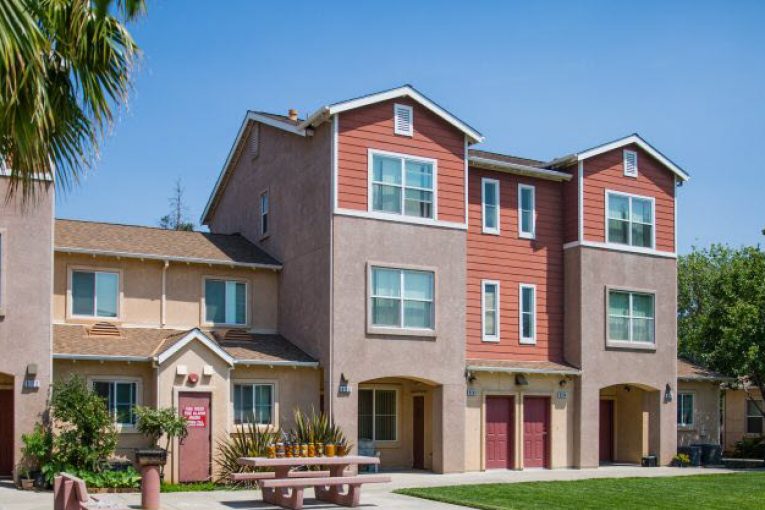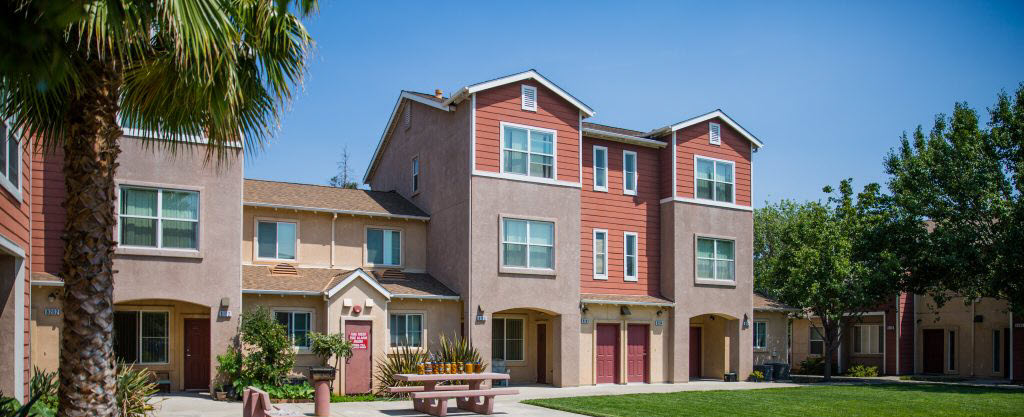

(From Press Release) – Mutual Housing California, one of the state’s leading nonprofit affordable housing developers, is about to crush out the danger of secondhand smoke in the 18 multifamily communities it owns and manages.
Beginning April 1, smoking will be prohibited in virtually all of Mutual Housing’s indoor and outdoor spaces, under a new policy that will clear the air for the non-smoking majority of nearly 3,100 people who live in more than 1,000 homes and apartments in the affected communities in Sacramento and Yolo counties.
“We’re instituting the policy as part of our overall goal to create safe and healthy communities for everyone who lives there,” explained Mutual Housing Community Development Officer Anne Marie Flynn. “We know that secondhand smoke contains significant health risks, and that it can go through walls and through air vents, impacting non-smoking neighbors. We know that carcinogens from secondhand smoke linger in an apartment after a resident moves out. What we’re trying to do is create living spaces that are as healthy as possible.”
After obtaining input from its residents, Mutual Housing agreed to provide designated smoking areas at its affected properties. Smoking will be banned, however, in all apartments, offices, community rooms, all other indoor spaces, patios, balconies, parking lots, trash enclosures, mailboxes, gardens and play areas.
The Westerner, a Mutual Housing Community, will not be affected by the tobacco restrictions. The 19th property managed by Mutual Housing is a mobile home park where the residents own their homes.
To help residents who are smokers and who are interested in kicking the habit, Mutual Housing – in partnership with Breathe California Sacramento Region – will offer free smoking cessation workshops that link up to outside programs such as the California Smokers’ Helpline at 1-800-NO-BUTTS.
Last year, the federal Department of Housing and Urban Development officially recognized the danger of secondhand smoke to non-smokers in multi-family apartments and banned smoking at all of its  public housing communities across the country.
public housing communities across the country.
California lawmakers have also moved in the same direction, enacting legislation that allows cities and counties to pass local laws requiring owners and managers of apartments and other multi-family buildings to eliminate smoking on their premises. So far, 51 municipalities have gone ahead and approved such ordinances.
It’s also legal in California for private multi-family housing providers to go ahead and ban smoking on their own.
“It’s wonderful that Mutual Housing has taken this step to create protections for the health of their residents before it is mandated,” said Breathe California Sacramento Region Program Manager Marissa Greenband. “In joining other property managers and owners in adopting these policies, Mutual Housing is showing that it really cares about the health of everybody who lives at its properties. The hope is that other property managers will follow suit while we at Breathe California and other organizations work to get these policies passed at municipality levels.”
The morbid effects of secondhand smoke have been well-documented. According to the federal Centers for Disease Control and Prevention in Atlanta, approximately 2.5 million people have died from secondhand smoke since 1964. That is slightly more than the approximate 2.4 million who died in car and truck crashes roughly during that same time period.
Secondhand smoke causes chronic ear infections, exacerbates asthma attacks and impaired respiratory development in children, and for the very youngest among them, it increases the possibility of Sudden Infant Death Syndrome. For adults, the danger from secondhand smoke includes heart disease, lung cancer and stroke.
Exposure levels to secondhand smoke are greatest among the poor and among African Americans, the CDC says. This is in part due to the fact that these segments of the population are more likely to live in multi-unit housing. Service workers, and construction and other blue-collar workers, also face higher exposure levels than the rest of the workforce, according to a study published in 2008 in the Journal of Occupational and Environmental Medicine.
Since October, Mutual Housing Residents Program Manager George Xiong has been working with Breathe to distribute door hangers, information on smoking cessation programs and other written materials on the change of policy to residents at the 18 Mutual Housing multi-family communities.
Xiong said that resident reaction has varied to the smoke-free policy, with some expressing strong support, while determined smokers have remained intent on “staying in the mind frame of ‘I’ve been doing this for years.”
“We are trying to accommodate that, within the designated smoking areas, and we are receptive to understanding the need for that,” Xiong said. “At the same time, we’re connecting folks with a wide variety of resources to help them really think about the benefits of quitting.”
Already, Mutual Housing and Breathe California have rolled out cessation workshops at seven affected properties. At the 20-minute sessions, Breathe and Mutual Housing have provided residents with information packets with links to groups such as American Cancer Society, the American Lung Association and the CVS Minute Clinic. They offer programs that range from “quit coaches” to online education to nicotine replacement therapy, the latter of which can be paid for through private health insurance and possibly through Medi-Cal.
Andrea Noble, who has lived at Mutual Housing on the Greenway in south Sacramento for 10 years, strongly favors the policy to eliminate secondhand smoke. A resident leader at the Greenway, Noble said she has attended the Breathe meetings and has spoken to many people around the community about the policy.
According to Noble’s calculations, most of her neighbors favor the change.
“I haven’t heard too many people who are not in favor,” Noble said. “I’ve heard a couple, but I think it’s going to be good, because a lot of us don’t smoke. I used to smoke, and now I don’t. When you’re walking around, it was like anybody smoked anywhere and you would walk into smoke everywhere. Sometimes when you smell it, you think ‘I want a cigarette.’ Now it’s going to be just in designated areas. I know where they are, and I don’t have to worry about that.”
Rose Rice, who lives in the Victory Townhomes Mutual Housing Community in North Sacramento, has three children. She doesn’t smoke, doesn’t like to be around it, and she for sure doesn’t want her kids to be exposed to wafting clouds laced with carcinogens such as burned nicotine and some 7,000 other chemicals, including 70 that also cause cancer
She sees secondhand smoke policies like the one enacted by Mutual Housing as a wave that is only going to get bigger.
“It’s happening,” Rice said. “It’s starting to happen everywhere, not just at our apartment. It’s at a lot of apartments.”

So they can still smoke meth and pot?
Doesn’t appear they specify tobacco for the smoking
“The Westerner, a Mutual Housing Community, will not be affected by the tobacco restrictions. “